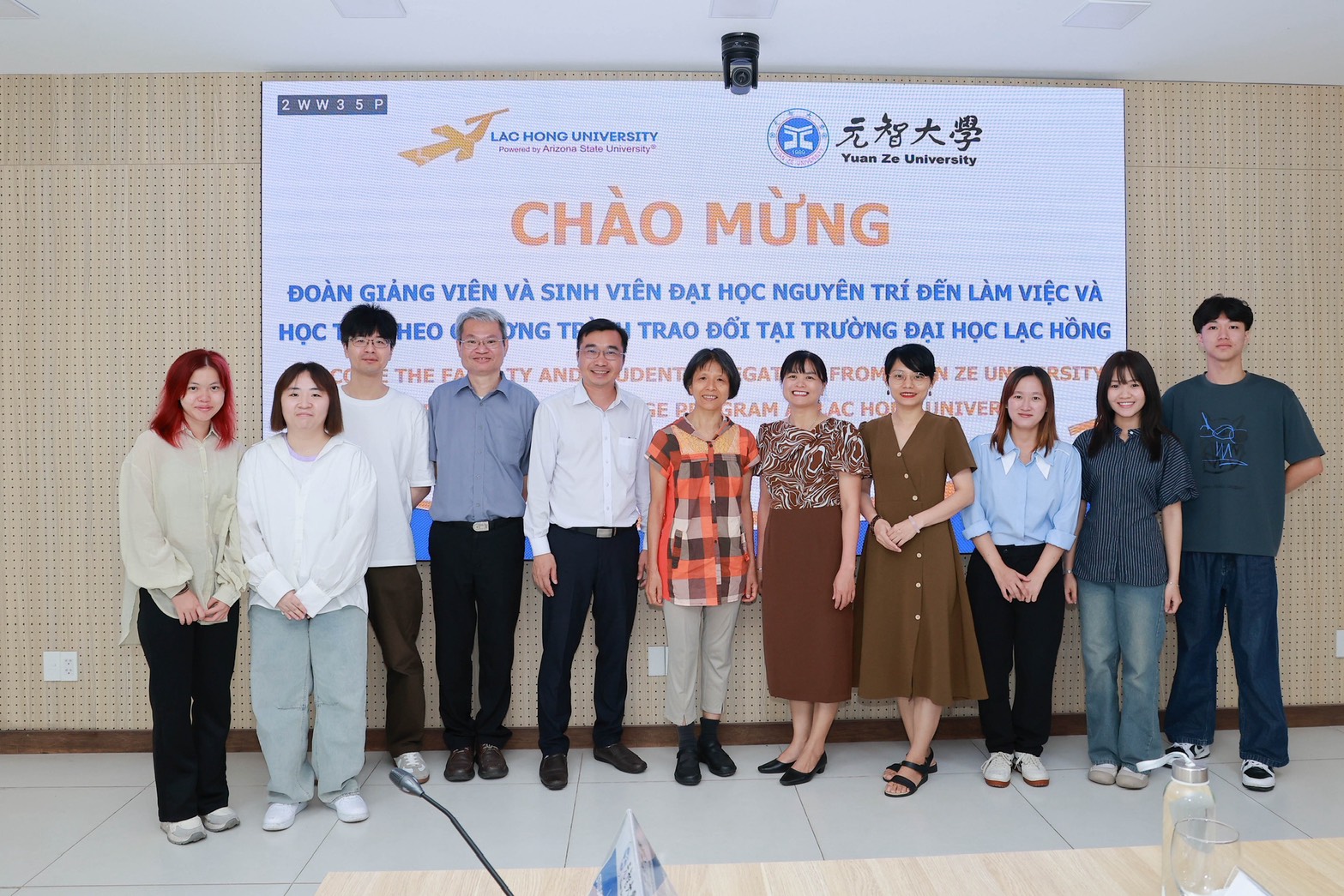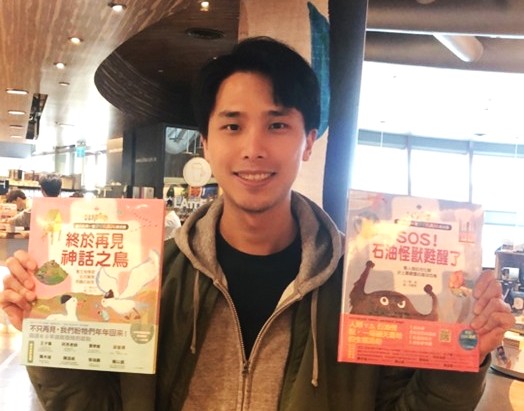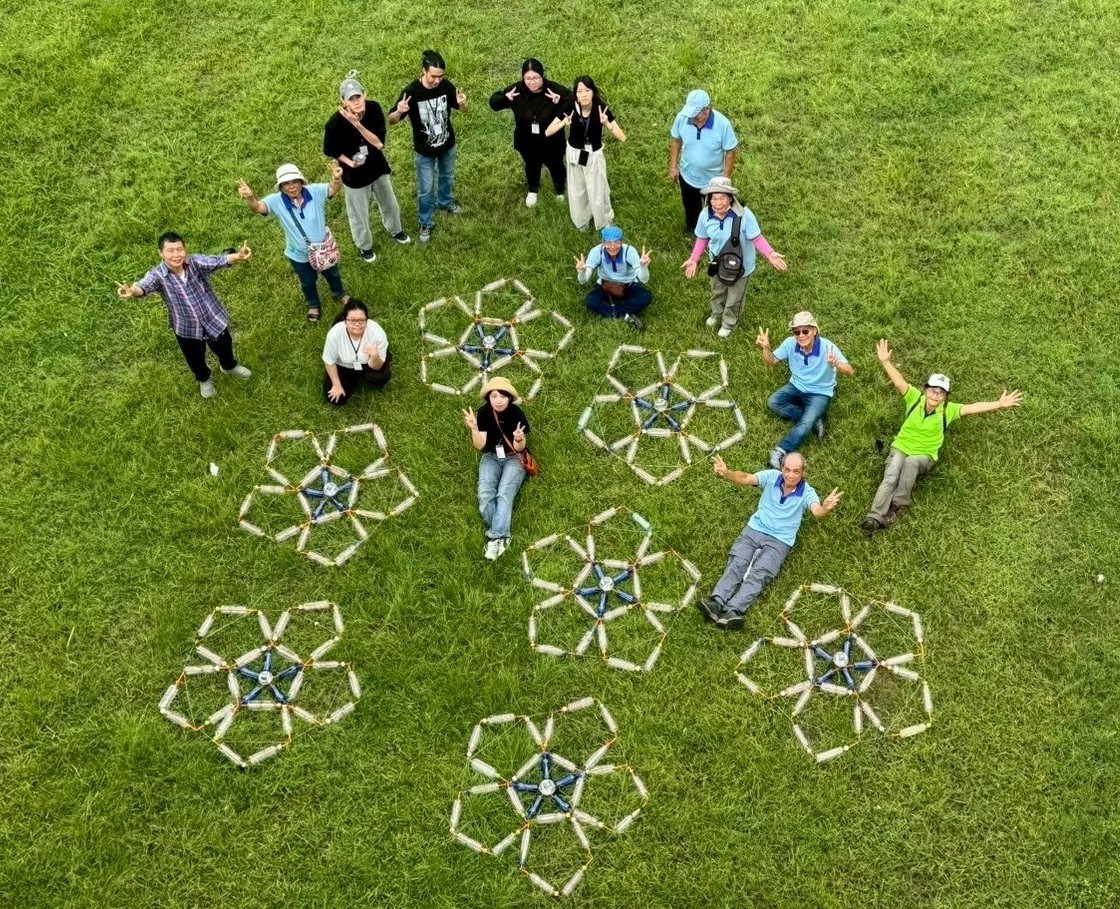To promote international educational exchange and lead innovation in Chinese language teaching, the Department of Chinese Linguistics and Literature at Yuan Ze University launched a one-month overseas internship program in collaboration with its sister school, Lac Hong University (LHU) in Vietnam.
Supported by Taiwan’s Ministry of Education under the New Southbound Dream-Building Program, the initiative combined AI technology with Chinese language instruction, offering Vietnamese students a new learning experience and marking a significant step toward the digital transformation of language education.
Located in Dong Nai Province in southern Vietnam, LHU was one of the region’s earliest established higher education institutions and had long played an influential role in both Chinese language education and industrial development. With the province’s rapid industrial growth and the upcoming launch of Long Thanh International Airport, the demand for Chinese-speaking professionals continued to rise. LHU’s Chinese Language program, with over 800 students, has adopted a “Chinese + Skills” training model, reflecting the growing importance of Chinese education within Vietnam’s academic landscape.
The internship program was supervised by Professor Fu-Mei Hsu from Yuan Ze University, with Professors Chih-Ming Huang and Chi-Hung Li, both experts in AI technology, leading five students to LHU. Together with local faculty and students, they explored the feasibility and innovative applications of AI in Chinese language teaching. The delegation was warmly received by Nguyen Thi Hoang Oanh, Director of the Office of International Relations; Hoang Tien Dung, Deputy Director; Nguyen Thi Nhu Chang, Deputy Dean of the Faculty of Oriental Studies; and Phan The Anh, Director of the Chinese Language Program. Both sides engaged in lively discussions, demonstrating a strong commitment to deepening future collaboration.
According to Nguyen Thi Hoang Oanh, Dong Nai Province was one of Vietnam’s largest industrial hubs, home to many Taiwanese enterprises, which had created a significant demand for Chinese-speaking talent. In recent years, the Vietnamese government has also introduced Chinese as a foreign language subject in primary schools and published new teaching materials, further elevating the language’s status in Vietnam’s education system. She expressed hope that the collaboration with Yuan Ze University would bring new vitality and innovation to Chinese language teaching in Vietnam.
Professor Fu-Mei Hsu stated that integrating AI technology could enhance teaching efficiency and interactivity, making Chinese learning more accessible, immediate, and personalized. The internship not only served as a practical application of innovative language teaching but also as an important case of cross-border educational technology implementation. Using AI-assisted systems, Vietnamese students were able to engage in real-time pronunciation correction, sentence generation, vocabulary expansion, and contextual dialogue practice, thereby improving their expressive and communicative abilities.
The Yuan Ze team utilized self-developed AI-assisted teaching tools to support classroom instruction. In oral practice sessions, AI served as a teaching assistant, generating interactive exercises, dialogue examples, and question banks, which significantly enhanced student participation and learning outcomes. According to feedback from Yuan Ze’s student interns, Vietnamese students already possessed a basic command of Chinese, but their learning became more efficient and engaging with AI assistance. They also showed great interest in generative tools such as Suno AI, Google Studio, and Gamma.
Beyond academic collaboration, Yuan Ze students also promoted cultural exchange to deepen mutual understanding. Through calligraphy demonstrations and martial arts performances, they showcased the beauty of both the calm and dynamic aspects of Chinese culture—creating one of the most memorable highlights of the internship.
Professor Shih-Hui Hung, Chair of the Department of Chinese Linguistics and Literature at Yuan Ze University, remarked that AI-assisted Chinese language instruction not only improved learning efficiency but also boosted student motivation, providing non-native learners with a more personalized learning experience. This collaboration demonstrated Yuan Ze University’s forward-looking capabilities in AI educational applications and strengthened Taiwan–Vietnam higher education ties. Both universities planned to continue promoting research and practical cooperation in AI-enhanced Chinese language teaching, paving the way for a new paradigm in cross-border education.
 English
English  正體中文
正體中文 



